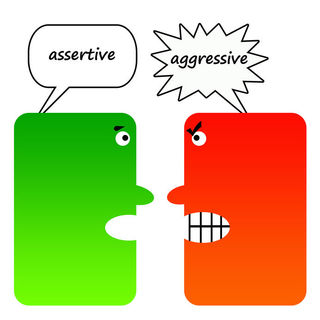Introversion
I Don’t Like You, and I Don’t Know Why
Introverts and extroverts may find themselves at odds when they first meet.
Posted February 6, 2020 Reviewed by Hara Estroff Marano

Have you ever met someone for the first time and thought, “I don’t like you, and I don’t know why?” The answer could be simple as you are an introvert and the person you just met is an extrovert. Introverts may view extroverts as arrogant, overconfident, brash, and pushy. Extroverts, on the other hand, may see introverts as quiet, nerdy, insecure, and socially inept. Such a tendency can serve as a filter through which a person’s future words and actions are judged.
People like others who share the same attitudes and perspectives as they do. Since introverts and extroverts have different perspectives, they view each other as different and thus might be naturally predisposed to dislike one another when they first meet. Extroverts focus on the outside world, while introverts have a greater tendency to be introspective. Introverts typically begin their day with fully charged social batteries, but social interactions drain them. When their batteries are drained, introverts withdraw into themselves to recharge.
The differences in their worldviews can cause social discomfort. Introverts are less likely to outwardly express their feelings. Consequently, the frustration caused by the actions of extroverts can build up over time. When the pent-up frustration reaches a certain point, the frustrated introvert may explode with a litany of past transgressions. Extroverts are often caught off guard.
Why do extroverts frustrate introverts? What they think, they say, and sometimes what they say offends others. Introverts think before they speak and don’t understand how someone could say something without first thinking about what they say. Extroverts finish other people’s sentences. Introverts think before they speak and often pause between thoughts to plan the next thing they want to say. Extroverts see the pause in the conversation, finish the other person’s sentence, and continue the conversation, leaving the introvert frustrated and unheard.
Changing negative first impressions is difficult. A person who forms a negative impression of another will be less inclined to meet that person a second time, because that person has been judged in a negative light. Without subsequent meetings, the person who has been judged negatively does not have an opportunity to change the mind of the person who judged them.
Additionally, once a first impression is formed, people are less likely to change their minds due to the psychological principle of consistency. When a person articulates an idea, they are less likely to change their minds because they must first admit that they were initially wrong. Maintaining an erroneous notion, such as a first impression, causes less anxiety than admitting an error and adopting another position.
Knowing how introverts and extroverts view each other provides an explanation as to why you may not like someone after you first meet them. Knowing why a person may not like you will help you adjust your communication style to foster good relationships in business and social settings.
For more information regarding how to build and maintain human relationships, refer to The Like Switch.
Facebook image: fizkes/Shutterstock


